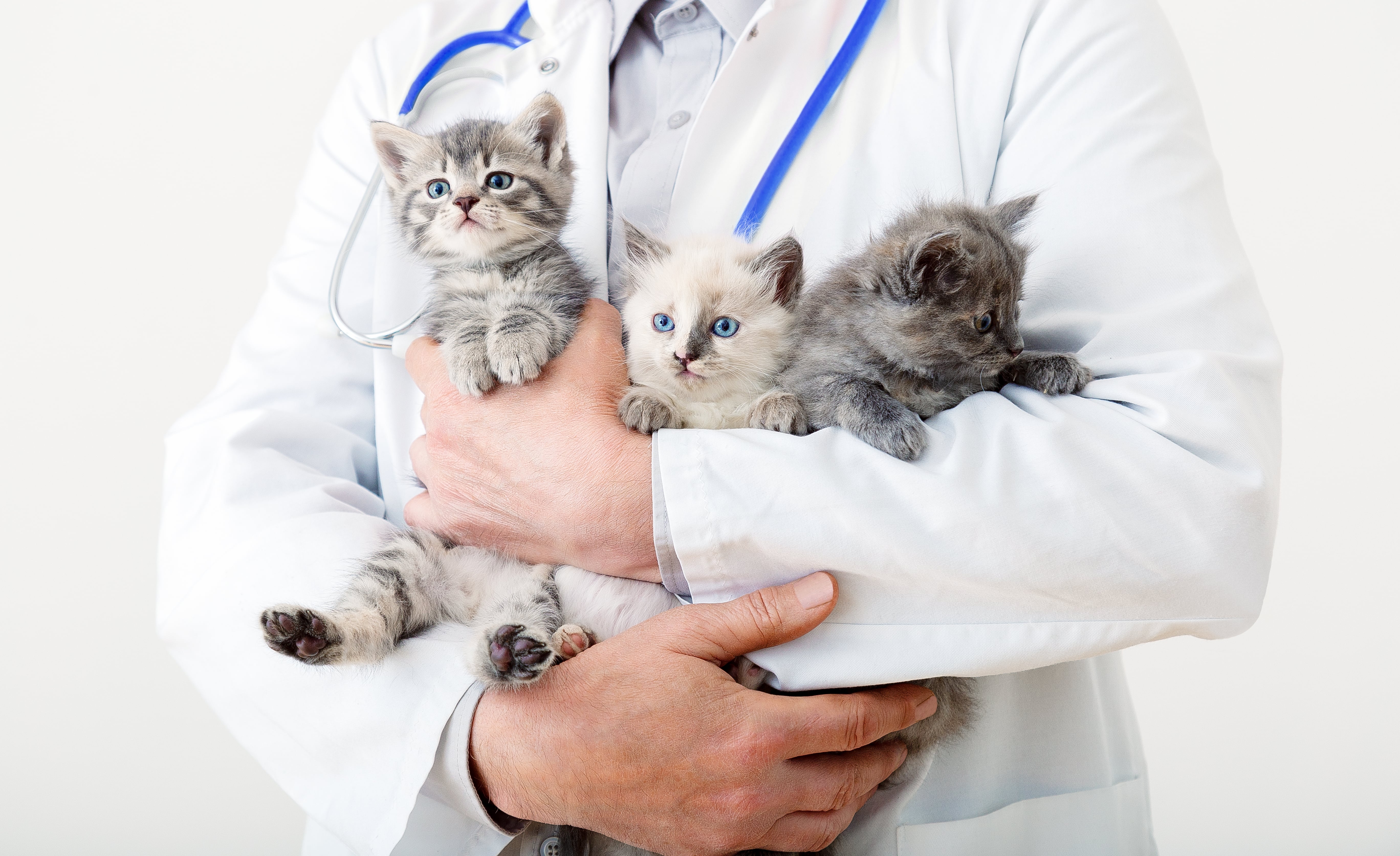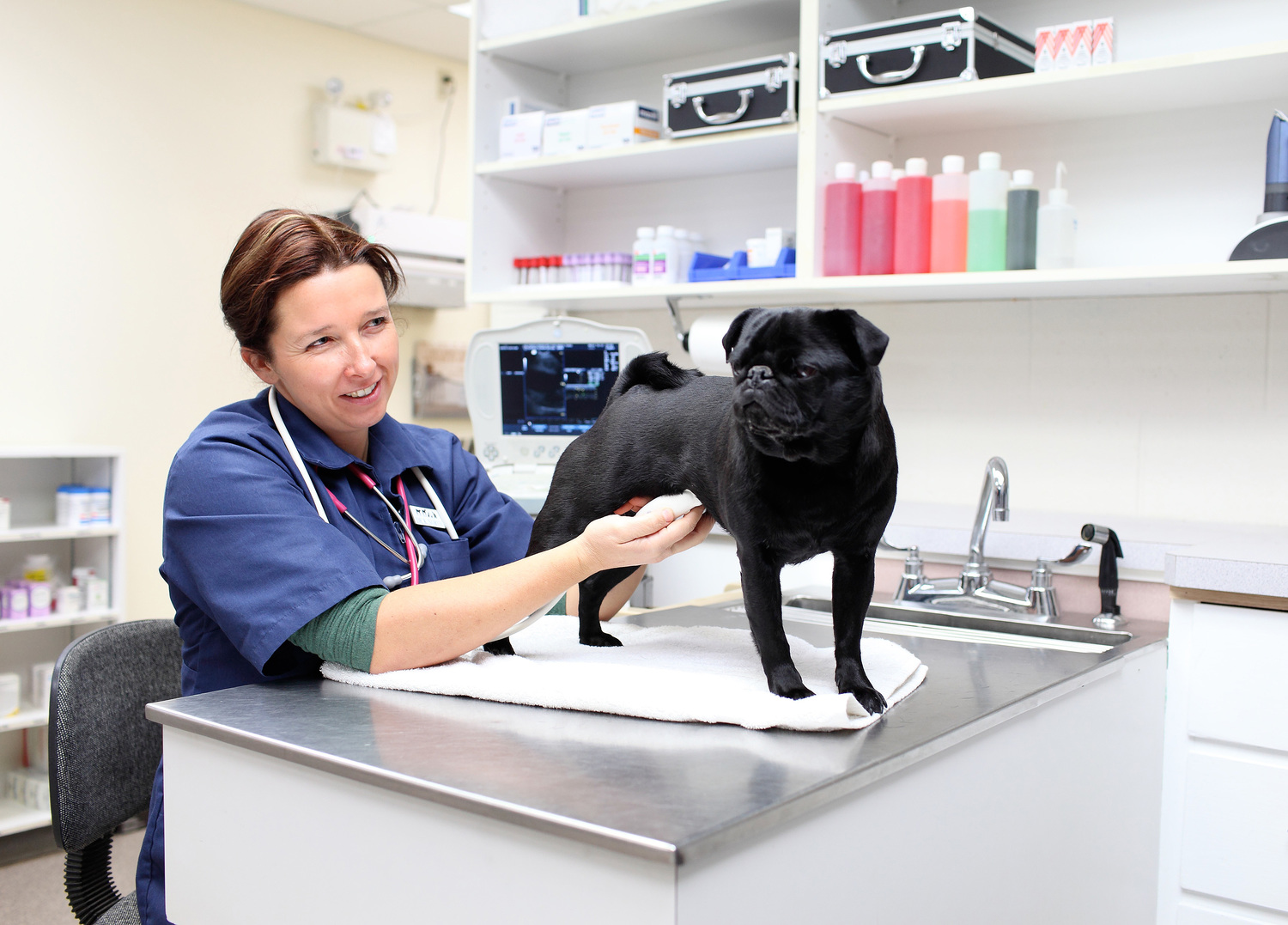Veterinary specialties that go beyond general pet care
Just How a Veterinary Specialty Hospital Can Cure Your Animal's Disorders With Advanced Techniques
Veterinary specialty hospitals play an important role in dealing with complicated health and wellness issues in pet dogs. They use sophisticated methods and modern technologies that enhance medical diagnosis and treatment. With access to specialized solutions, animal proprietors can discover tailored services for their animals' disorders. This increases crucial questions regarding the particular methods employed and the benefits they give. Understanding these aspects can significantly influence an animal's recovery journey.
Understanding the Duty of Veterinary Specialty Hospitals
Main treatment veterinarians provide necessary solutions for pet health, veterinary specialty hospitals play an essential function in dealing with complicated medical conditions that need innovative diagnostics and treatment. These centers are outfitted with specialized modern technology and experienced professionals who concentrate on specific locations of vet medicine, such as oncology, neurology, and cardiology.
Veterinary specialty hospitals promote a collective approach, usually operating in conjunction with an animal's key vet to create detailed care strategies. They provide access to advanced imaging techniques, such as MRI and CT scans, which are not commonly offered in common clinics. Furthermore, these hospitals provide critical care unit for seriously unwell animals, making certain round-the-clock surveillance and support.
Specialized Services Used by Veterinary Experts
Veterinary specialists supply essential solutions that boost family pet health care, particularly via innovative analysis imaging techniques. These devices allow precise assessments of complicated medical conditions, causing much more effective targeted treatment strategies. By integrating these specialized solutions, vet hospitals can greatly boost patient results and general health.
Advanced Diagnostic Imaging
Advanced analysis imaging plays a crucial role in modern vet medicine, making it possible for professionals to obtain detailed understandings into an animal's health. Techniques such as X-rays, ultrasound, computed tomography (CT), and magnetic resonance imaging (MRI) allow vets to picture interior structures without intrusive treatments - Learn More. These advanced imaging techniques help in diagnosing a variety of problems, from cracks and lumps to body organ problems. By supplying clear pictures, they enhance the accuracy of evaluations, which is important for effective treatment preparation. Furthermore, specialized veterinary radiologists analyze these pictures, ensuring that subtle concerns are not forgotten. Eventually, progressed analysis imaging contributes in supplying considerable treatment, as it permits early detection and intervention in a pet dog's clinical issues

Targeted Treatment Strategies
Targeted treatment strategies are vital for attending to the particular health demands of animals, making certain that each animal gets customized treatment customized to its one-of-a-kind problem. Veterinary specialists create these plans based upon extensive evaluations, consisting of sophisticated diagnostic imaging and laboratory examinations. By concentrating on the private animal's medical diagnosis, breed, way of living, and age, specialists can recommend efficient treatments, varying from drug adjustments to medical interventions. These plans likewise integrate follow-up treatment and monitoring to track the pet dog's development and make necessary changes. This method advertises perfect outcomes and boosts the total top quality of life for pets facing intricate health and wellness challenges. Ultimately, targeted therapy strategies represent a commitment to providing the greatest criterion of vet treatment.
Advanced Diagnostic Techniques for Accurate Diagnoses
As pets face increasingly complicated health challenges, the combination of advanced diagnostic strategies has come to be vital for accomplishing accurate diagnoses. Veterinary specialty hospitals make use of modern imaging technologies, such as MRI and CT scans, to envision interior structures with impressive clearness. These techniques permit veterinarians to identify abnormalities that might not show up through conventional approaches.
In enhancement to imaging, advanced laboratory examinations, including hereditary and biomarker analyses, give vital understandings into hidden conditions. These tests allow veterinarians to discover diseases at earlier phases, helping with timely treatment. The use of endoscopy permits for straight visualization of internal organs, assisting in the diagnosis of breathing and gastrointestinal issues.
Innovative Treatment Options for Complicated Conditions
Ingenious therapy choices for complicated conditions in animals have arised as an important emphasis within veterinary specialty hospitals. Utilizing innovative diagnostic tools, these facilities enhance their ability to recognize concerns precisely and customize suitable treatments. Veterinary. Furthermore, the implementation of minimally invasive procedures and progressed rehab methods uses family pets a much better possibility at recovery with reduced pain
Advanced Diagnostic Equipments
While the landscape of veterinary medication remains to evolve, advanced diagnostic devices have emerged as essential possessions for dealing with complex problems in pet dogs. These innovative modern technologies, consisting of digital imaging, ultrasound, and molecular diagnostics, enable vets to get precise information concerning a pet's wellness status rapidly. For example, high-resolution imaging methods can disclose complex details of inner structures, allowing precise assessments of injuries or diseases. Additionally, hereditary screening offers understandings into hereditary problems, leading customized therapy plans. By leveraging these cutting-edge analysis tools, vet specialty hospitals can improve their ability to recognize disorders that might have formerly gone undiscovered. Eventually, these innovations contribute to improved end results and improve the overall top quality of treatment offered to beloved family pets.
Minimally Intrusive Procedures
Developments in veterinary medication have led the means for minimally invasive treatments, which offer new therapy options for complicated problems in animals. These ingenious strategies, such as laparoscopy and endoscopy, permit veterinarians to carry out surgical treatments with smaller lacerations, lowering injury and recuperation time. By using specialized tools and cameras, veterinarians can detect and treat issues like lumps, intestinal problems, and joint issues with precision - Learn More. This method decreases pain and brings about quicker healing, allowing family pets to go back to their normal activities sooner. Additionally, minimally intrusive treatments frequently cause less scarring and a reduced danger of issues. As veterinary specialty hospitals embrace these sophisticated methods, pet dog owners can really feel more certain in their pets' care and total health
Advanced Recovery Techniques
As veterinary medicine develops, progressed rehab strategies are becoming important for managing complicated problems in pets. These methods encompass a series of cutting-edge treatment choices, including hydrotherapy, laser treatment, and physical treatment. Hydrotherapy utilizes water resistance to boost flexibility and reinforce muscles, valuable for pet dogs recouping from surgical procedure or injury. Laser therapy advertises healing by lowering swelling and pain, promoting quicker recovery times. Physical treatment utilizes targeted exercises to boost toughness and adaptability, customized to each family pet's specific requirements - Veterinary. Additionally, modalities like acupuncture and chiropractic changes can additionally support rehabilitation by relieving pain and boosting total wellness. Veterinary specialty hospitals are progressively incorporating these techniques, making sure animals receive detailed care that deals with both emotional and physical healing, ultimately enhancing their top quality of life
The Importance of a Multidisciplinary Approach
A multidisciplinary strategy in veterinary treatment greatly enhances the treatment end results for pet dogs, as it integrates experience from various specializeds to address intricate health concerns. This collective technique includes veterinarians, experts, technicians, and support staff interacting to create detailed therapy strategies tailored to each animal's unique demands. By integrating expertise from fields such as surgery, internal medicine, oncology, and rehabilitation, veterinarians can recognize underlying conditions that may otherwise go undetected.
Moreover, this method cultivates communication among group participants, making sure that all facets of a pet's health are thought about. As an example, a pet dog recovering from surgical procedure may gain from input from both a recovery and a specialist expert, bring about a much more reliable recovery procedure. Eventually, a multidisciplinary strategy not only boosts the top quality of care but likewise boosts the total health of pet dogs, offering them with the very best chance for an effective healing and long-term wellness.
Cutting-Edge Modern Technology in Veterinary Medication

Telemedicine has actually also become an essential my site source, allowing veterinarians to consult with animal proprietors from another location, therefore promoting prompt treatments. Additionally, the combination of expert system in examining clinical data adds to a lot more efficient treatment strategies customized to individual requirements. Sophisticated research laboratory tools permits fast blood analysis and pathogen detection, cultivating punctual medical actions. As vet specialty hospitals proceed to integrate these innovations, they not just improve the high quality of treatment however also considerably enhance the general well-being of family pets.
Success Stories: Real-Life Examples of Pet Dog Recovery
Countless heartwarming success stories highlight the impressive recuperations of pets treated at vet specialty hospitals. One such case included Bella, a Golden Retriever identified with a severe orthopedic problem. After sophisticated medical treatment and recovery, Bella was not just able to walk once more however also to run happily in the park, much to her owners' delight.
One more motivating story features Max, a pet cat with persistent kidney illness. With specialized nutritional administration and cutting-edge therapies, Max's condition stabilized, permitting him to reclaim his energy and hunger. His owners were thrilled to see him go back to his playful self.
Lastly, Luna, a Dachshund that suffered a back injury, undertook advanced therapies, leading to an amazing recovery. These tales highlight the knowledge and concern found in veterinary specialty hospitals, showcasing their capacity to bring back health and wellness and happiness to beloved pet dogs and their households.
Regularly Asked Concerns
What Should I Expect During My Family pet's Specialty Consultation?
Throughout a specialty appointment, animal owners can expect a thorough exam, thorough medical history conversations, diagnostic tests, and customized therapy alternatives. The vet expert will certainly supply insights and referrals for the pet dog's particular wellness needs.
Just How Can I Discover a Veterinary Specialty Hospital Near Me?
To find a veterinary specialty hospital close by, one can make use of online internet search engine, inspect regional directories, or seek referrals from key vets. In addition, pet dog owner discussion forums can offer important understandings and experiences about nearby centers.
Are Specialty Provider Covered by Family Pet Insurance?
Specialty solutions might be covered by animal insurance, yet protection differs by plan. Proprietors must very carefully evaluate their insurance policy plan details and consult their provider to understand the degree of insurance coverage for specialty veterinary solutions.
The Length Of Time Will My Animal's Treatment Take?

The period of an animal's therapy can vary markedly, typically ranging from a few days to several weeks. Elements influencing this timeline consist of the details problem, treatment type, and the pet's overall health and wellness and feedback.
What Are the Costs Related To Specialty Veterinary Care?
The costs related to specialty vet treatment can differ commonly, usually ranging from hundreds to hundreds of dollars. Elements influencing these expenditures include the complexity of the problem, called for treatments, and analysis treatments required for effective care.
Veterinary specialty hospitals play an important duty in addressing complicated wellness concerns in family pets. Key care veterinarians offer crucial services for pet wellness, vet specialty hospitals play a critical role in addressing complex clinical problems that call for innovative diagnostics and therapy. Veterinary specialty hospitals promote a collaborative approach, typically functioning in combination with a pet dog's primary veterinarian to develop complete treatment plans. Ingenious therapy choices for complicated conditions in animals have emerged as a critical emphasis within veterinary specialty hospitals. A multidisciplinary approach in veterinary treatment significantly improves the treatment end results for pets, as it incorporates competence from numerous specialties to deal with complicated health problems.